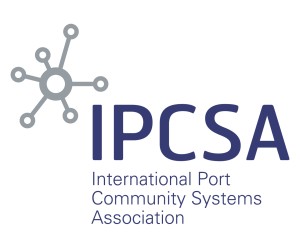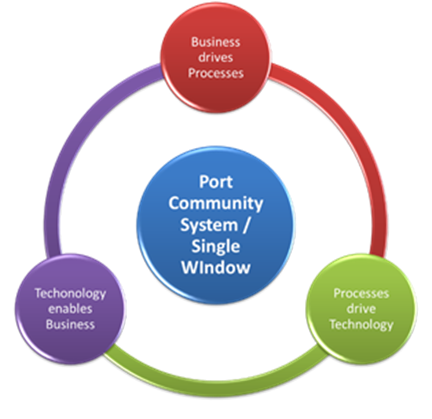Preparing for Post-COVID-19 Operations

Preparing for Post COVID-19 operations
“Considerations and Practicalities for Port Community Systems, Single Window and other electronic exchange platforms”
Port Community Systems (PCS), Single Window (SW) and other Electronic Exchange platforms that have during the COVID-19 Global Crisis been critical elements of the digital infrastructure for the supply chain, including Sea and Air Ports, Trade Facilitation and Cross Border logistical and administrative / regulatory processes are now considering how to plan and prepare for recovery and normalisation of operations.
During the crisis those organisations managing such electronic platforms were able to easily transfer operations from office to home and still able to provide the quality services as trusted third parties. These electronic platforms are emerging from the crisis, stronger and are considered even more critical by a wider range of stakeholders who are dependent on their digitalisation expertise of the supply chain. IPCSA considers some key impacts and lessons learned from COVID-19.
COVID-19 pandemic impacts / lessons
- Less resistance to change to new methods of working.
- All the projects and initiatives involving digitalisation are now highest priorities.
- More support from the government and digitalisation of processes in the supply chain, particularly administrative ones.
- Existing and new Digital services become a priority.
- Remote work of employees can be more productive.
- Remote operations of business systems (PCS, SW, …) is critical for business continuity.
- Video conference and online meetings are useful tools as a substitute to face to face meetings.
Emerging from COVID-19 Restrictions
IPCSA, as the global representative body for the operators of Port Community System, Single Window Operators, Airport Community System and Cargo Community Systems, has with the support of it’s membership created some key points that should be considered in the post COVID-19 world by Sea and Air Port Community Systems operators, Single Window operators, Port and Airport Authorities and other Electronic Exchange Platform operators.
These points should be considered in relation to both your organisation, your people and your operations:
- Rationalise – Identify key aspects and people required to ensure operations and normalise activities.
- Review – Record/note the changes that occurred from the start of restrictions and lockdowns to current social distancing guidance, the effect this had on operations and changes to operations and processes. Ensure the review of the changes and decisions on a continuous basis to be able to adapt to further changes in requirements.
- Reconsider – Reconsider lessons learned from the lockdown situation to be included in your governance and working environment, including employee home working as an option.
- Plan – Future impacts and review your internal meeting procedure and back-up solutions, bearing the practice from COVID-19 in mind.
- People – understand the requirements of your people (including health, social and transport considerations) and how these can be incorporated into the new normal after COVID-19. Ensure that for key people back-up staff are available, ensure management is aware of key operational and safety procedures.
- Processes – Ensure your authentication and security processes, including cyber security meet the requirements of your community, bearing in mind increased external accesses. It is also difficult to “instantly” digitalize a process during a crisis so it is important to plan how to digitalize all the processes that are still paper based
- Connectivity – Connect beyond your local area, to help create connected supply chains, to ensure that if similar situations occur critical goods can be kept moving. Use a variety of online videoconferencing tools to support this and to overcome overload of particular solutions.
- Trust – Trust your people and Community to act in a way that benefits all and not just a small minority.
- Test – Regularly conduct exercises to test solutions which addresses possible problem scenarios. Such test must be done under circumstances as realistic as possible (number of people working from home, security of external accesses, real need for people to be on location, communications channels and back-up solutions, etc.).
- Communication – Tell your community how you managed the COVID-19 crisis and kept their goods and people moving and how you will continue to do this.
- Supportive – Ensure you are able to provide the support your users and employees require to deal with a post COVID-19 world. This may include training in online tools such as video conferencing and helpdesk operating software.
- Technology Neutral – a neutral approach and usage of open software standards enables constant change with new and emerging technologies to cope with the unexpected.
- International Standards – Use of international standard, particularly data reference models, simplifies data exchange.
Concluding Considerations: Whether it be emerging from the COVID-19 crisis or general development of the digital supply chain as a whole, let “Business drive Processes”, then let those “Processes drive Technology” and thus allowing “Technology to enable Business”.

About IPCSA: IPCSA represents Sea and Air Port Authorities, Port Community System Operators, Single Window Operators and Air / Cargo Community Systems Operators across all regions of the world. IPCSA recognised across the globe for providing advice and guidance on the electronic exchange of information across borders and throughout the whole supply chain.
Contact: Inga Morton, IPCSA, General Manager – Email: inga.morton@ipcsa.international








